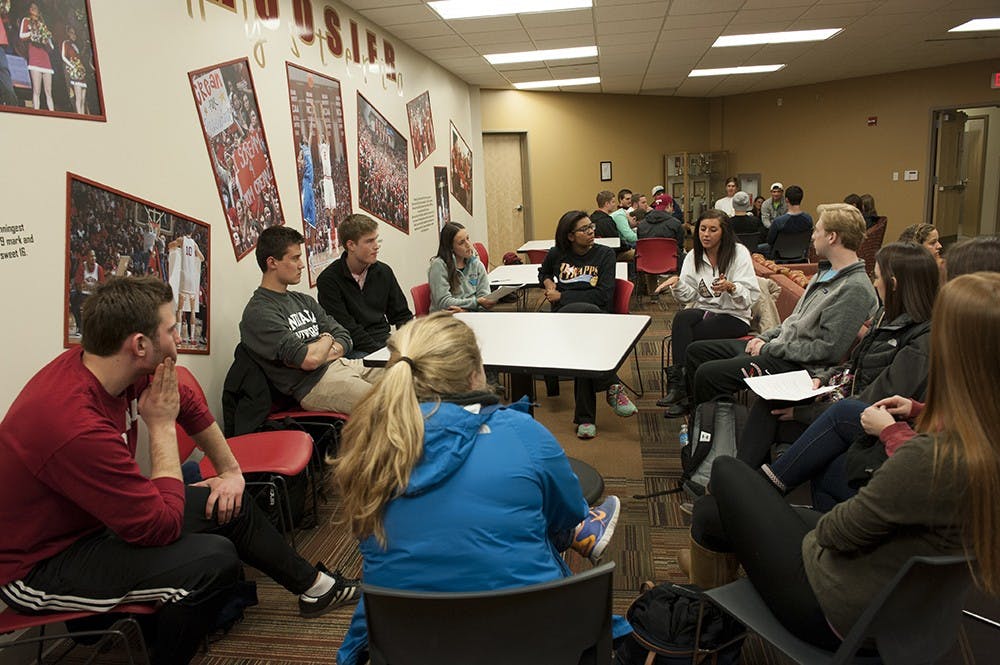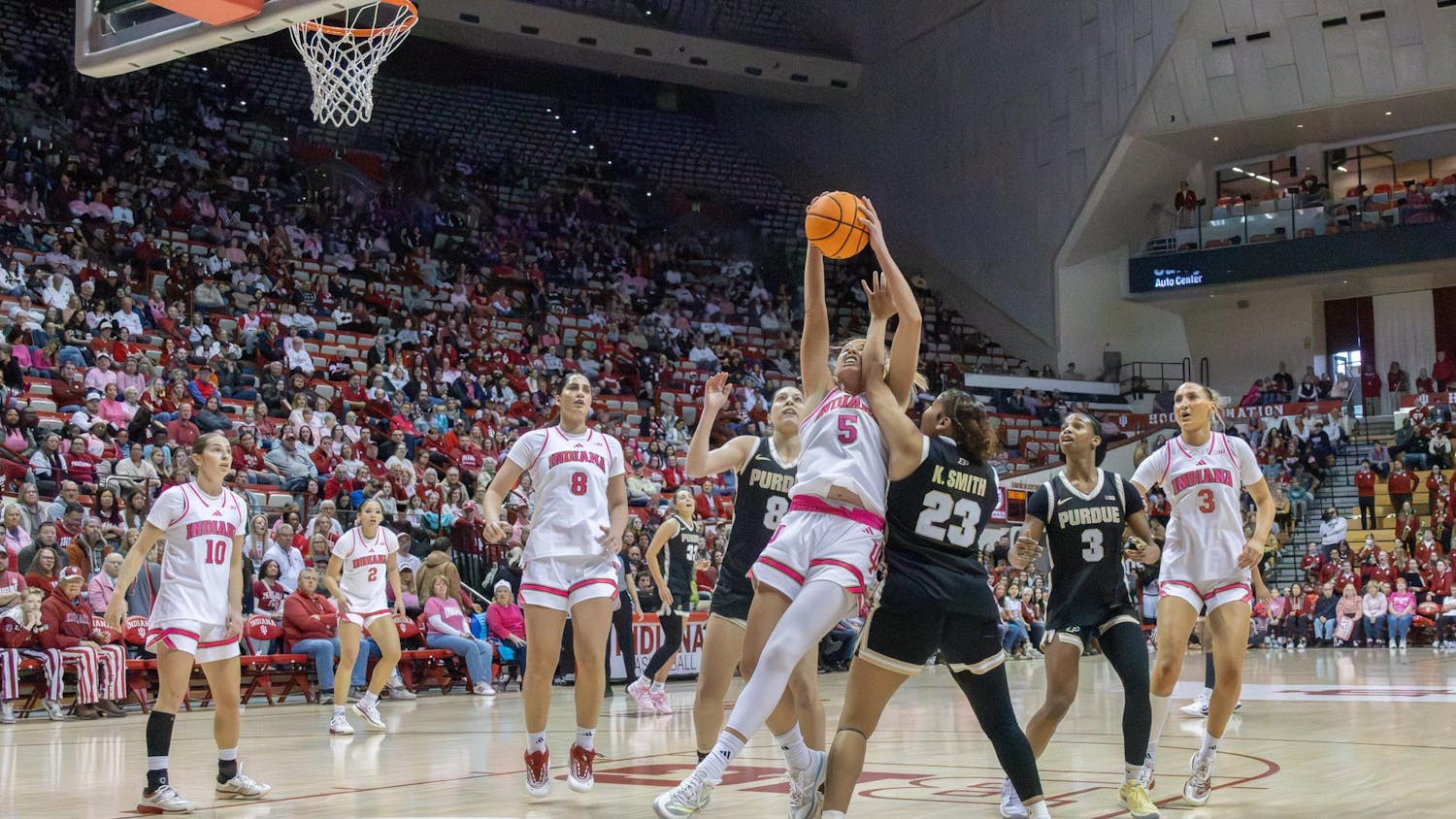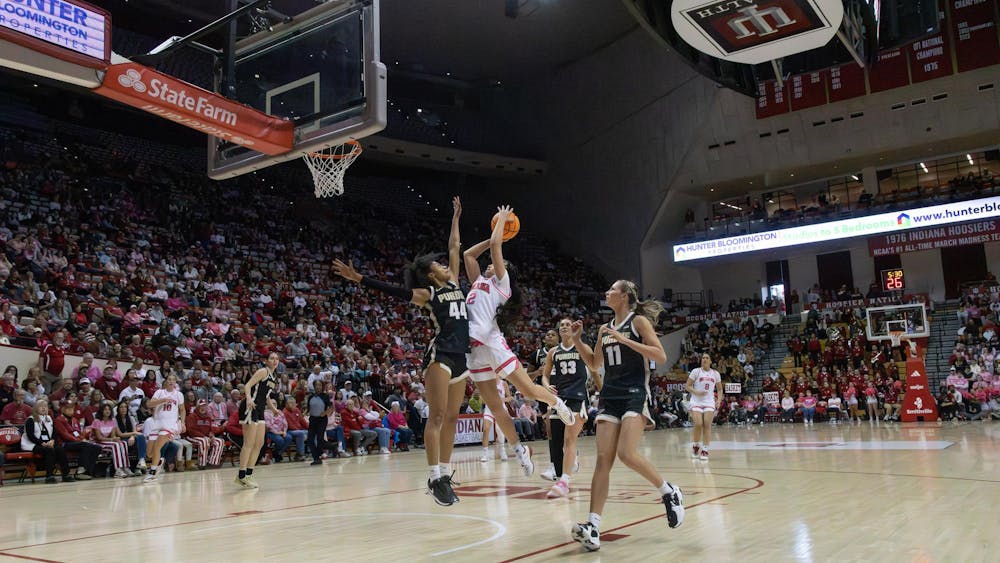The sorority group Safe Sisters, which acts as a liaison and support system for sorority members who have experienced sexual violence, and its fraternity counterpart Men Against Rape and Sexual Assault (MARS) had a collaborative meeting to discuss sexual assault prevention methods within the greek system.
Sexual Assault Crisis Center counselor Debbie Melloan and other SACS representatives were present to help answer questions and facilitate discussion.
“Tonight was really historical,” Melloan said. “A lot of people have been invested in making campus and the two organizations who are represented here places that people can come and feel safe and work together and tonight really is the realization of that.”
Nearly 200 Safe Sisters and MARS representatives were split up into discussion groups based on their sorority-fraternity pairs for Little 500, Panhellenic Vice President of Membership Development Bella Shuh said.
This allowed members to meet each other beforehand in safe, sober environments to discuss topics such as sexual violence, bystander intervention and sexual assault reporting. The groups were also Little 500 affiliated because the race and the following celebrations often require increased risk management, Shuh said.
“Little Five highlights a lot of those topics and increases risk in a lot of ?senses,” Shuh said. “These topics have needed to be talked about for so long.”
Safe Sisters and MARS used conversation starters from IU’s It’s On Us Summit that took place last week. The discussion prompts encouraged members to look forward and focus on improving greek culture, Interfraternity Council Vice President of Membership Development Jesse Scheinman said.
Amongst the popular discussion prompts were questions that addressed greek life’s current culture, perception and what chapters would like their future legacy to be. When members joined a larger group discussion at the end of the session, several groups noted the greek image both in the media and from non-affiliated students was often negative and based off of specific events or stereotypes.
“What you see in the news when chapters get kicked off for things like hazing or sexual assault, those aren’t representative of what it means to be greek,” Scheinman said. “They’re not living their values, and they’re not serving the original purpose of why greek organizations are here.”
To combat those who fail to live up to greek values, MARS director Bill Phan suggested changing the culture of a chapter from ?within.
“A lot of times you are in a greek organization where things are already in place, everything’s already there, everything’s already tradition,” Phan said. “Because it’s tradition you’re going to continue doing it. The times when fraternities actually improve are when one person challenges it.”
Safe Sisters co-director Dylan Lanoff encouraged the larger group to not only embrace change in the culture but to be vocal about it.
“The negative things that happen in greek life that people hear about are very loud and overt and out there but the good things that happen tend to be not as overt and loud and in your face,” Lanoff said. “It’s important to encourage these MARS and Safe Sisters members to make that push and be loud and overt about the good things that they’re doing.”
Having both the sorority and fraternity perspective present also made discussions of sexual assault less confrontational or judgmental, Lanoff said.
“I think it’s important that we came together to talk about this so we understand that we want to work together,” Lanoff said. “We’re not blaming men for sexual assault. We’re blaming the people who sexually assault.”






